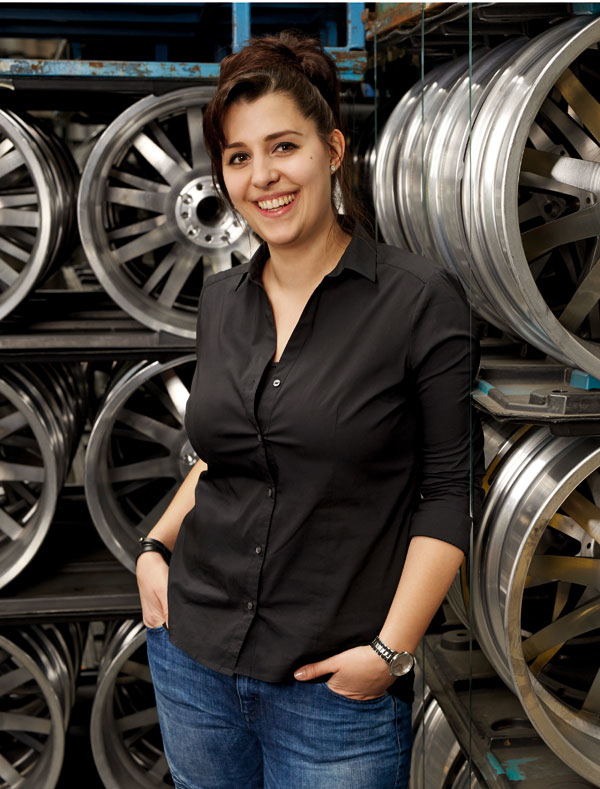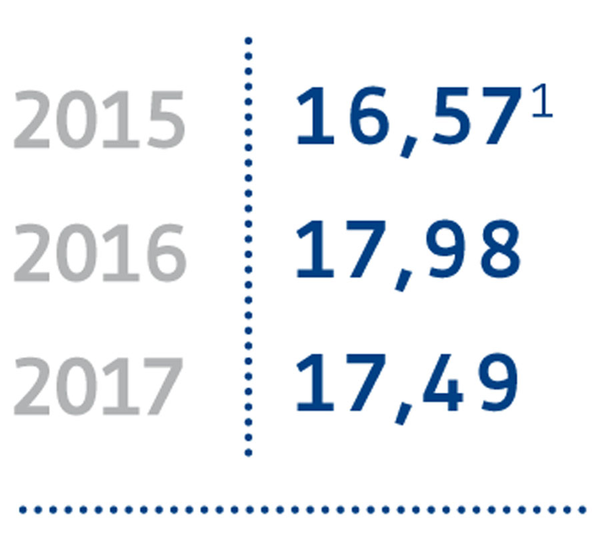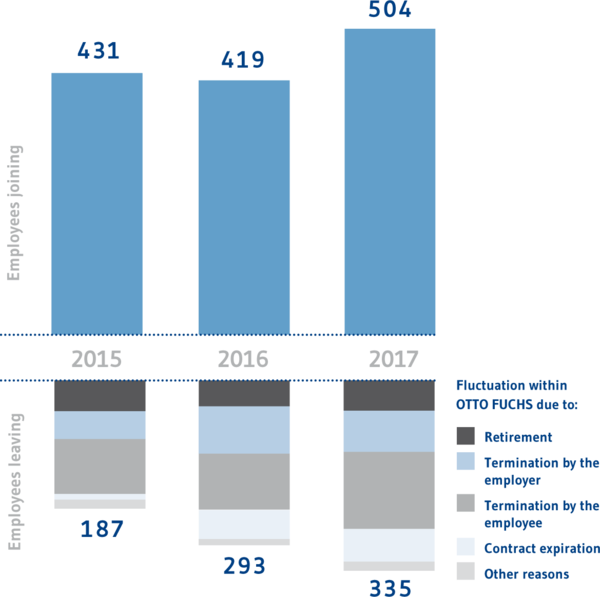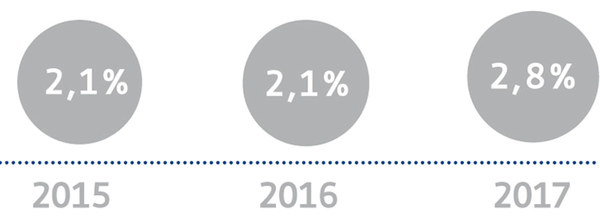PROJECTS AND MEASURES
TRAINING AND JUNIOR EMPLOYEE DEVELOPMENT
Training and developing the next generation of OTTO FUCHS employees have been top priorities since the company was founded. There has been a training workshop in Meinerzhagen since 1934, where an average of 30 young people begin vocational training every year. The subsidiaries around the world are also training more and more junior employees every year, and we are introducing a new training course in China. In this way, OTTO FUCHS uses and creates sustainable structures with which to handle the shortage of skilled workers in the future, too.
On average, there were around 114 apprentices, trainees, working students, and interns working at the Meinerzhagen site in 2016 and some 120 in 2017. There were additionally approximately 38 junior employee positions at the subsidiaries in Dülken, Hungary, the USA, China, and South Africa. Trainee programs for university graduates have proved their worth as a means of covering the company’s increasing executive and specialist needs. The apprenticeship occupations at the German sites include industrial mechanics, cutting machine operators, tools mechanics, materials testers, machine and plant operators, and industrial clerks. OTTO FUCHS also offers a combined technical and clerical study course. Internal training ranging from company school classes to first-aid courses makes the employees’ career starts easier.
To get more school pupils and students interested in technical professions, OTTO FUCHS also does its bit outside of its own plant gates and promotes technology and construction competitions. For example, OTTO FUCHS has been the main sponsor of the Formula Student Team at Bonn-Rhein-Sieg University of Applied Sciences since 2010. The company also sponsors the international “Formel 1 in der Schule” (“Formula 1 in Schools”) competition, which promotes technology understanding, economic skills, and teamwork among the young entrants.
PROFESSIONAL DEVELOPMENT
OTTO FUCHS wants to give every employee the opportunity to develop their talents and skills. We will be unable to maintain our ability to innovate, build up specific expertise, and make long-term careers within the Group possible if we fail to do so. We have therefore put in place a professional developmentsystem. There are professional training and personal development programs for skilled workers and executives. In addition to language courses, we attach importance among other things to teaching in the areas of IT, quality management, and materials processes. The array of development opportunities
is rounded out by training on topics such as employee management, communication, occupational safety, and environmental issues. The employees’ basic entitlement to training is governed by works agreements. The costs of professional development are generally also assumed by the company if employeesgain further qualifications on their own initiative, for example becoming a master craftsman or engineer.2
The professional development activities were stepped up at all the plants once again in 2017 compared with the previous years, and the Meinerzhagen site achieved a new record high of more than 7,700 training days. The number of training hours at the sites around the world likewise increased significantly. In Hungary, it almost doubled between 2015 and 2017. There, the good professional development opportunities are also helping the company to hold on to employees. The fluctuation rate in the Hungarian region of Tatabánya is four percent higher than at OTTO FUCHS Hungary.





